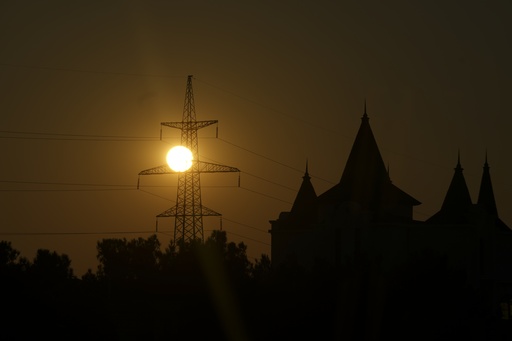
BAKU, Azerbaijan — As the United Nations climate summit nears its conclusion, participating countries find themselves facing immense pressure, with significant progress on their primary objectives still lacking.
The ongoing COP29 summit has largely focused on climate finance—funding that affluent nations are supposed to provide to developing countries aiming to cope with the repercussions of extreme weather events and adapt to a planet that is warming. Experts estimate that developing nations require around $1 trillion or more, yet draft documents released Thursday after nearly two weeks of negotiations disappointed many from the Global South, offering little to no indication of financial commitments.
Negotiations have a tendency to extend beyond their scheduled times due to calls for wealthier countries to compensate for the environmental damage largely attributable to their historical emissions from burning fossil fuels. This added urgency complicates matters for Azerbaijan, which is hosting this year’s Conference of Parties while being an oil-rich nation itself.
In a statement issued late Thursday, the summit presidency expressed cautious optimism, suggesting that discussions about a financial package “are starting to take shape” and committed to providing new draft texts on Friday.
“COP29 calls on all parties to engage promptly and constructively so we can achieve the ambitious outcomes that are crucial,” the statement emphasized.
Earlier that day, COP29 President Mukhtar Babayev organized a Qurultay—a traditional Azerbaijani assembly—where negotiators discussed viewpoints from various countries. He assured participants that he would find “a path forward for ongoing discussions.”
Critics label the absence of specific financial figures as “a slap in the face” for developing nations.
Independent analysts argue that at least $1 trillion is essential to support a transition from fossil fuels to clean energy sources like solar and wind, improve adaptive capacities against climate change, and compensate for damages incurred from extreme weather.
Juan Carlos Monterrey Gomez from Panama noted that the current lack of transparent commitments feels disrespectful toward vulnerable countries already heavily affected by climate-related crises.
“It is total disregard for those nations dealing with the worst effects of this crisis,” he remarked. “Developed countries need to stop evading responsibility and present a detailed financial proposal that reflects the gravity of the situation.”
Esa Ainuu, a representative from the Pacific island nation of Niue, similarly criticized the absence of a concrete financial figure in the draft agreement.
“For us, being in the Pacific, this is absolutely vital,” Ainuu stated. “There’s no escaping to another location; this is the harsh reality for us. If financial discussions yield no benefits, then why are we convening at COP?”
Mohamed Adow, the director of Power Shift Africa, also voiced dissatisfaction with the absence of a financial figure. “What we need is a signed agreement, but all we currently have is a blank page,” he lamented.
In addition to financial discussions, negotiations are also ongoing regarding commitments to reduce fossil fuel usage and the strategies needed to adapt to climate change. Unfortunately, progress in these areas has been minimal as well.
Countries in Europe and the United States criticized the proposals for not being robust enough in reaffirming last year’s call for a transition from fossil fuels.
Jennifer Morgan, the head of the German delegation, remarked, “The existing text reflects no progress in reducing the world’s greenhouse gas emissions, which cannot be our response to the struggles faced by millions around the globe. We can—and must—do better.”
U.S. climate envoy John Podesta expressed surprise at the “complete absence of continuity” from the commitments made last year in Dubai. The United States, recognized as the largest historical emitter of greenhouse gases, has remained somewhat disengaged in these talks, especially as it faces uncertainty with the potential return of Donald Trump to the presidency.
Only a few days prior, the leaders of the 20 largest economies convened in Brazil without mentioning the necessary transition away from fossil fuels. UN Secretary-General Antonio Guterres, present at the meeting, highlighted the disparity between official statements and real-world actions.
“There is no viable path toward limiting global warming to 1.5 degrees Celsius without phasing out fossil fuels,” Guterres stressed during a Thursday press conference.
